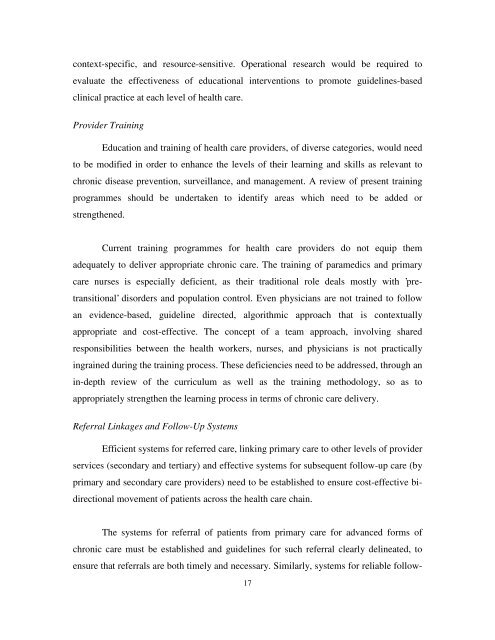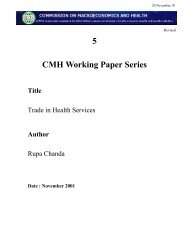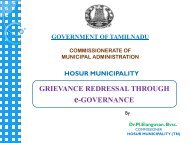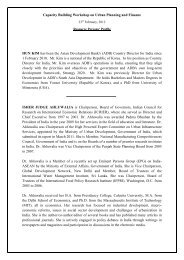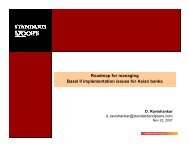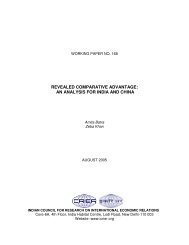prevention and control of non-communicable diseases - icrier
prevention and control of non-communicable diseases - icrier
prevention and control of non-communicable diseases - icrier
Create successful ePaper yourself
Turn your PDF publications into a flip-book with our unique Google optimized e-Paper software.
context-specific, <strong>and</strong> resource-sensitive. Operational research would be required to<br />
evaluate the effectiveness <strong>of</strong> educational interventions to promote guidelines-based<br />
clinical practice at each level <strong>of</strong> health care.<br />
Provider Training<br />
Education <strong>and</strong> training <strong>of</strong> health care providers, <strong>of</strong> diverse categories, would need<br />
to be modified in order to enhance the levels <strong>of</strong> their learning <strong>and</strong> skills as relevant to<br />
chronic disease <strong>prevention</strong>, surveillance, <strong>and</strong> management. A review <strong>of</strong> present training<br />
programmes should be undertaken to identify areas which need to be added or<br />
strengthened.<br />
Current training programmes for health care providers do not equip them<br />
adequately to deliver appropriate chronic care. The training <strong>of</strong> paramedics <strong>and</strong> primary<br />
care nurses is especially deficient, as their traditional role deals mostly with ’pretransitional’<br />
disorders <strong>and</strong> population <strong>control</strong>. Even physicians are not trained to follow<br />
an evidence-based, guideline directed, algorithmic approach that is contextually<br />
appropriate <strong>and</strong> cost-effective. The concept <strong>of</strong> a team approach, involving shared<br />
responsibilities between the health workers, nurses, <strong>and</strong> physicians is not practically<br />
ingrained during the training process. These deficiencies need to be addressed, through an<br />
in-depth review <strong>of</strong> the curriculum as well as the training methodology, so as to<br />
appropriately strengthen the learning process in terms <strong>of</strong> chronic care delivery.<br />
Referral Linkages <strong>and</strong> Follow-Up Systems<br />
Efficient systems for referred care, linking primary care to other levels <strong>of</strong> provider<br />
services (secondary <strong>and</strong> tertiary) <strong>and</strong> effective systems for subsequent follow-up care (by<br />
primary <strong>and</strong> secondary care providers) need to be established to ensure cost-effective bidirectional<br />
movement <strong>of</strong> patients across the health care chain.<br />
The systems for referral <strong>of</strong> patients from primary care for advanced forms <strong>of</strong><br />
chronic care must be established <strong>and</strong> guidelines for such referral clearly delineated, to<br />
ensure that referrals are both timely <strong>and</strong> necessary. Similarly, systems for reliable follow-<br />
17


